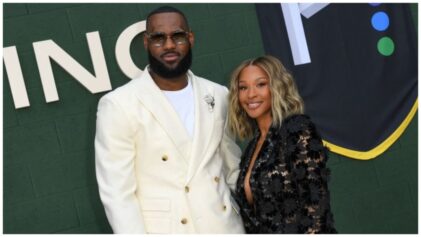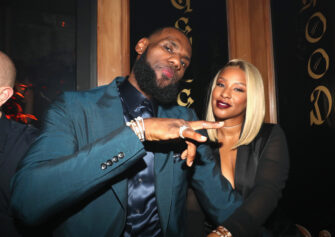It’s gotta be the shoes. Or at least that’s what Nike is banking on when it unveils its new LeBron X basketball shoe later this year. The Wall Street Journal is reporting that the more sophisticated version of the shoe that will include motion sensors to track various metrics—including how high the player jumps—will retail for a whopping $315.
Not all analysts agree the price will be quite that high, but concede that the day of the $300 shoe is now upon us.
Nike officials declined comment about the accuracy of the projected price when asked by ESPN.
It was back in 1986 that Nike’s Air Jordan broke the $100 basketball sneaker barrier. The company eclipsed the $200 price tag 16 years later with the release of the Air Jordan XVII.
The new shoe, which is named in honor of reigning NBA MVP LeBron James, is sure to be a lightning rod for further criticism of Nike, given the nation’s rough economic environment and the preponderance of poor African-American kids who will likely try to find ways to purchase the expensive shoes. The sports apparel giant has traditionally been very successful in passing on the rising costs of materials to consumers with little resistance because of its unmistakable name brand and bevy of high-end products.
SportsOneSource, a market research tracking firm, reported last month that the nationwide sales of sneakers that retail for more than $100 were up 30 percent on the year and the sales of basketball shoes that cost more than $100 had risen 50 percent. Between the Nike, Jordan and Converse brands, Nike owns roughly 95 percent of the basketball shoe market in the U.S.
But at least one analyst thinks the rush to judgment is premature. SportsOneSource analyst Matt Powell predicted that Nike will only make about 50,00 pairs of the Nike-plus enabled LeBron Xs compared to the 200,000 to 300,000 pairs of the regular version that figure to sell in the $175 range.
“This is all about electronic componentry,” Powell told the Wall Street Journal. “The plus version of this shoe is a very expensive shoe for a very specific audience: The high school or college athlete that wants to improve their game by measuring their progress by wearing the shoes.”


